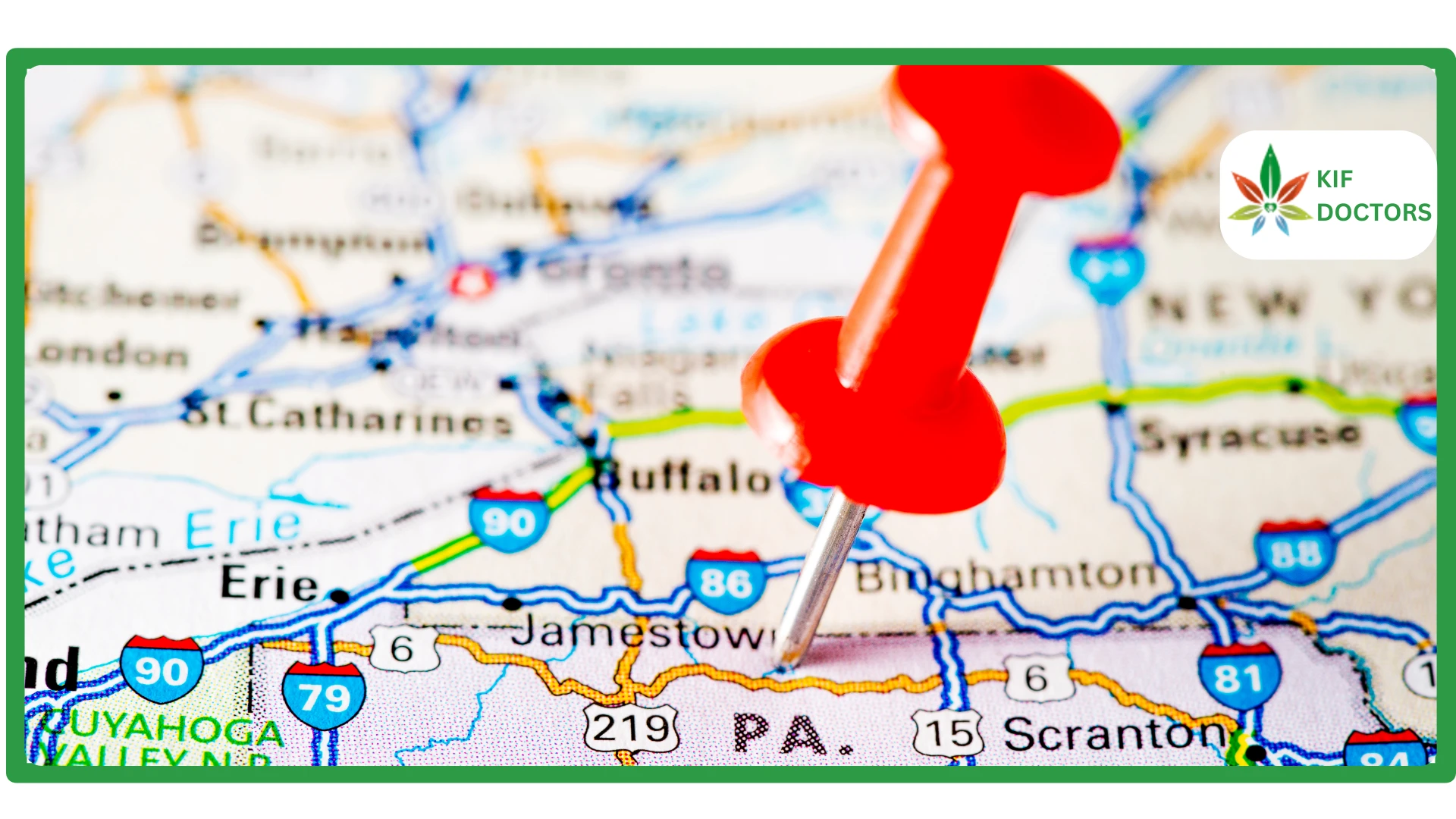Ohio’s medical marijuana program has opened doors for thousands of patients seeking alternative treatments for chronic conditions. In Cleveland, where the cannabis industry is thriving, obtaining a medical marijuana card is a straightforward process that can significantly improve quality of life for those with qualifying conditions. This guide provides a detailed roadmap for Cleveland residents looking to navigate the process, from understanding eligibility to finding dispensaries and staying compliant with state laws. With recreational marijuana also legal in Ohio since 2023, you might wonder why a medical card is still worth pursuing. Let’s explore the benefits, steps, and everything you need to know to access medical cannabis in Cleveland.
Why Get a Medical Marijuana Card in Cleveland?
Ohio legalized medical marijuana in 2016, and the program has since expanded to serve over 400,000 patients statewide. In Cleveland, medical marijuana offers a regulated, safe way to manage symptoms of chronic illnesses. While recreational marijuana is available for adults 21 and older, a medical marijuana card provides unique advantages that make it a valuable option for patients.
- Lower Costs: Medical marijuana patients are exempt from the 5.75% sales tax applied to recreational purchases, saving significant money over time.
- Higher Possession Limits: Cardholders can possess up to a 90-day supply of cannabis, compared to the 2.83 ounces allowed for recreational users.
- Access to Medical-Grade Products: Dispensaries often reserve high-potency or specialized products, like certain tinctures or edibles, for medical patients.
- Legal Protections: A medical card offers stronger legal safeguards, especially in situations involving employment or housing where federal laws may conflict with state regulations.
- Physician Guidance: Cardholders work with certified doctors to tailor treatment plans, ensuring safe and effective use of cannabis.
For Cleveland residents managing conditions like chronic pain, epilepsy, or PTSD, these benefits can make a medical marijuana card a game-changer. The process is designed to be accessible, with online options streamlining applications. I always recommend going for a Medical Marijuana Card Online Instantly to ensure quick access to these benefits.
Who Qualifies for a Medical Marijuana Card in Ohio?
Ohio’s medical marijuana program is open to residents with specific health conditions. The state maintains a list of 25 qualifying conditions, which include both physical and mental health disorders. To qualify, you must be diagnosed with one or more of the following:
- Alzheimer’s disease
- ALS (Amyotrophic Lateral Sclerosis)
- Cancer
- Chronic traumatic encephalopathy
- Chronic or intractable pain
- Crohn’s disease
- Epilepsy or other seizure disorders
- Fibromyalgia
- Glaucoma
- Hepatitis C
- HIV/AIDS
- Inflammatory bowel disease
- Multiple sclerosis
- Parkinson’s disease
- Post-traumatic stress disorder (PTSD)
- Sickle cell anemia
- Spinal cord disease or injury
- Terminal illness
- Tourette syndrome
- Traumatic brain injury
- Ulcerative colitis
In addition, Ohio allows physicians to recommend cannabis for other conditions on a case-by-case basis, provided they meet the state’s criteria for “debilitating medical conditions.” You must be an Ohio resident with a valid government-issued ID, such as a driver’s license or state ID, to apply. Minors can also qualify but require a caregiver to manage their application and purchases.
Step-by-Step Guide to Getting a Medical Marijuana Card in Cleveland
Obtaining a medical marijuana card in Cleveland is a streamlined process, thanks to Ohio’s online system and telemedicine options. Here’s a step-by-step guide to help you get started:
Step 1: Confirm Your Eligibility
Review the list of qualifying conditions to ensure you meet the criteria. If you’re unsure about your diagnosis, consult your primary care physician or a cannabis-specialized doctor. Gather any medical records that document your condition, such as test results, prescriptions, or doctor’s notes.
Step 2: Schedule a Consultation with a Certified Physician
Ohio requires a recommendation from a physician certified by the Ohio State Medical Board to prescribe medical marijuana. These doctors, known as Certificate to Recommend (CTR) physicians, can evaluate you in person or via telemedicine. During the consultation, the doctor will review your medical history, confirm your qualifying condition, and discuss how cannabis can help manage your symptoms. Services like Kif Doctors offer same-day approvals, making it easy to connect with a certified physician online.
Step 3: Register with the Ohio Medical Marijuana Control Program
Once you receive a physician’s recommendation, you’ll need to register with the Ohio Medical Marijuana Control Program. Create an account on the state’s online Patient Registry portal and submit your application. You’ll need to provide:
- Your physician’s recommendation
- A valid Ohio driver’s license or state ID
- Proof of Ohio residency (e.g., utility bill or lease agreement)
- A $50 annual registration fee ($25 for veterans or those on SSI/SSDI)
The application is typically processed within 10 business days, and you’ll receive a digital medical marijuana card upon approval.
Step 4: Visit a Licensed Dispensary
With your card in hand, you can purchase cannabis from any of Ohio’s licensed dispensaries. Cleveland has several reputable dispensaries, such as The Botanist, RISE Cleveland, and Amplify, offering a range of products like flower, edibles, tinctures, and topicals. Bring your digital card and ID to the dispensary, where staff can guide you in selecting products suited to your needs.
Step 5: Renew Your Card Annually
Ohio medical marijuana cards expire after one year. To renew, schedule a follow-up consultation with a CTR physician to confirm your condition still qualifies. Submit a renewal application through the Patient Registry, along with the $50 fee (or reduced fee for eligible groups). The process mirrors the initial application, and renewals are typically approved quickly if your documentation is complete.
Costs of Getting and Maintaining a Medical Marijuana Card
The cost of obtaining a medical marijuana card in Cleveland varies depending on several factors, including physician fees and state charges. Here’s a breakdown of what to expect:
- Physician Consultation: $100–$200 for the initial visit, with telemedicine often on the lower end. Follow-up or renewal visits may cost $50–$150.
- State Registration Fee: $50 annually ($25 for veterans or those on SSI/SSDI).
- Cannabis Products: Prices vary by product type and dispensary. On average, an ounce of medical marijuana flower costs $150–$250 in Ohio, compared to $210 for recreational due to tax exemptions.
While the upfront costs may seem high, the tax savings and access to higher possession limits often offset the expense for regular users. Some dispensaries also offer discounts for medical patients, veterans, or first-time buyers, so ask about promotions when you visit.
Finding Dispensaries in Cleveland
Cleveland’s dispensary scene is robust, with several locations catering to medical patients. Most dispensaries are dual-use, serving both medical and recreational customers, but medical cardholders often receive priority service and access to exclusive products. Popular Cleveland dispensaries include:
- The Botanist (Cleveland): Known for its wide selection of flower, edibles, and concentrates, with knowledgeable staff to assist new patients.
- RISE Cleveland: Offers a user-friendly online ordering system and frequent discounts for medical cardholders.
- Amplify Dispensary: Located in the Gordon Square area, this dispensary focuses on patient education and high-quality products.
Before visiting, check the dispensary’s website for menus, hours, and any medical-patient specials. Many dispensaries allow online pre-orders for faster service, which is especially helpful for patients with mobility issues. Always bring your digital medical card and ID, as dispensaries are required to verify your status.
Understanding Ohio’s Medical Marijuana Laws
Ohio’s medical marijuana program is tightly regulated to ensure patient safety and compliance. Here are key rules to know:
- Possession Limits: Medical patients can possess up to a 90-day supply, as determined by their physician. This is significantly higher than the 2.83-ounce limit for recreational users.
- Consumption Rules: Smoking medical marijuana is prohibited, but vaporizing, edibles, tinctures, patches, and topicals are allowed. Consumption is banned in public places, vehicles, or federal properties.
- Home Cultivation: Medical patients cannot legally grow their own cannabis, unlike recreational users who can grow up to six plants per person (12 per household).
- Driving Restrictions: Driving under the influence of marijuana is illegal, and Ohio has strict THC blood-level limits for impairment. Store cannabis securely when traveling to avoid legal issues.
- Employment and Housing: While Ohio’s medical marijuana law protects patients from criminal penalties, employers and landlords can still enforce drug-free policies due to federal restrictions.
Staying informed about these regulations helps you use medical marijuana responsibly and avoid unintended legal consequences. The Cleveland.com frequently covers updates to Ohio’s cannabis laws, making it a reliable source for staying current.
Benefits of Medical Marijuana for Cleveland Patients
Medical marijuana has transformed the lives of many Cleveland residents by offering relief from debilitating symptoms. For example, patients with chronic pain often find cannabis reduces their reliance on opioids, which carry a higher risk of addiction. Those with epilepsy may experience fewer seizures, while PTSD patients report improved sleep and reduced anxiety. Cleveland’s medical dispensaries work closely with patients to recommend strains and products tailored to their conditions, such as high-CBD tinctures for inflammation or indica-heavy flower for insomnia.
Beyond physical benefits, medical marijuana fosters a sense of empowerment. Patients who’ve struggled with traditional treatments often feel hopeful again, knowing they have a safe, regulated option. The guidance of CTR physicians ensures that cannabis use is part of a broader treatment plan, maximizing its effectiveness.
Challenges and Considerations
While Ohio’s medical marijuana program is well-established, it’s not without challenges. Some patients find the cost of consultations and products prohibitive, especially if insurance doesn’t cover cannabis-related expenses. Others worry about workplace drug testing, as Ohio law doesn’t explicitly protect medical marijuana patients from employment discrimination. Additionally, proposed legislative changes, like Senate Bill 56, could restrict aspects of the program, such as THC potency or dispensary numbers, impacting access.
To navigate these challenges, stay proactive. Research financial assistance programs, like dispensary discounts or state fee reductions, and consult with your employer about medical marijuana policies. Monitoring news from trusted sources like Cleveland.com can keep you informed about potential law changes.
FAQs About Medical Marijuana Cards in Cleveland
How long does it take to get a medical marijuana card in Ohio?
The process typically takes 10–14 business days, including the physician consultation and state application processing. Online services can expedite approvals, sometimes within the same day.
Can I use my Ohio medical marijuana card in other states?
Some states, like Michigan and Missouri, have reciprocity agreements that may accept Ohio’s medical card. Check the destination state’s laws before traveling.
Is medical marijuana covered by insurance in Ohio?
No, insurance does not cover medical marijuana consultations or products due to federal restrictions. However, tax exemptions and dispensary discounts can reduce costs.
What happens if my medical marijuana card expires?
If your card expires, you lose access to medical dispensaries and legal protections. Renew your card before it expires by scheduling a physician consultation and submitting a renewal application.
Can I apply for a medical marijuana card if I’m not an Ohio resident?
No, you must be an Ohio resident with proof of residency to qualify for the state’s medical marijuana program.
Conclusion
Getting a medical marijuana card in Cleveland opens the door to safe, regulated cannabis treatment for a wide range of conditions. From chronic pain to PTSD, the benefits of medical marijuana are backed by growing research and patient success stories. By following the steps outlined in this guide—confirming eligibility, consulting a certified physician, registering with the state, and choosing a dispensary—you can access the relief you need with confidence. The process is more accessible than ever, with online options like Kif Doctors simplifying approvals. While costs and regulations require careful consideration, the savings, legal protections, and personalized care make a medical marijuana card a worthwhile investment for many Cleveland residents. Stay informed, work with trusted professionals, and take the first step toward better health today.
 Since 2021, Kif offers a streamlined platform to get a medical marijuana card online. We have served more than 45K patients across the United States. Sign Up Now to get the right to use medical cannabis for your health condition without any delay.
Since 2021, Kif offers a streamlined platform to get a medical marijuana card online. We have served more than 45K patients across the United States. Sign Up Now to get the right to use medical cannabis for your health condition without any delay.
























